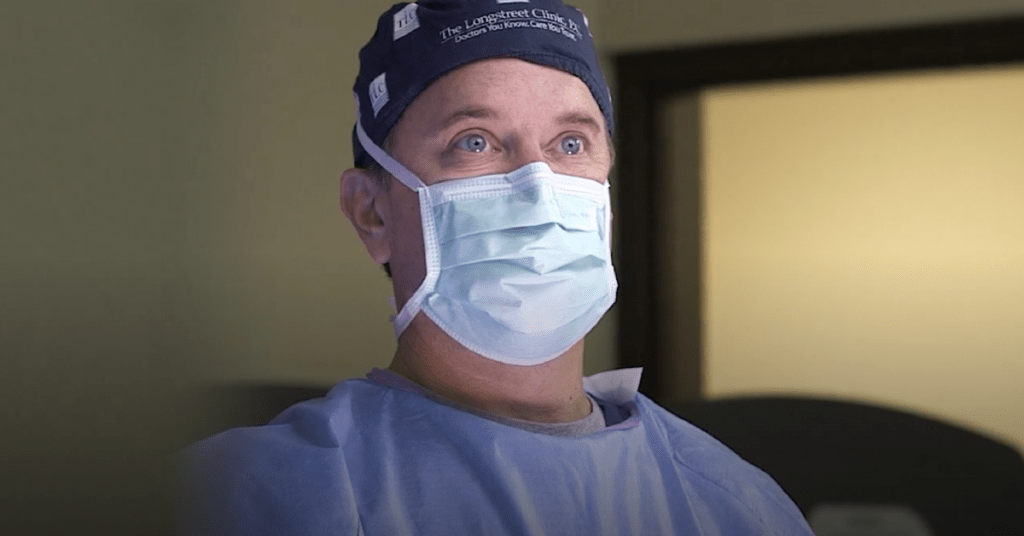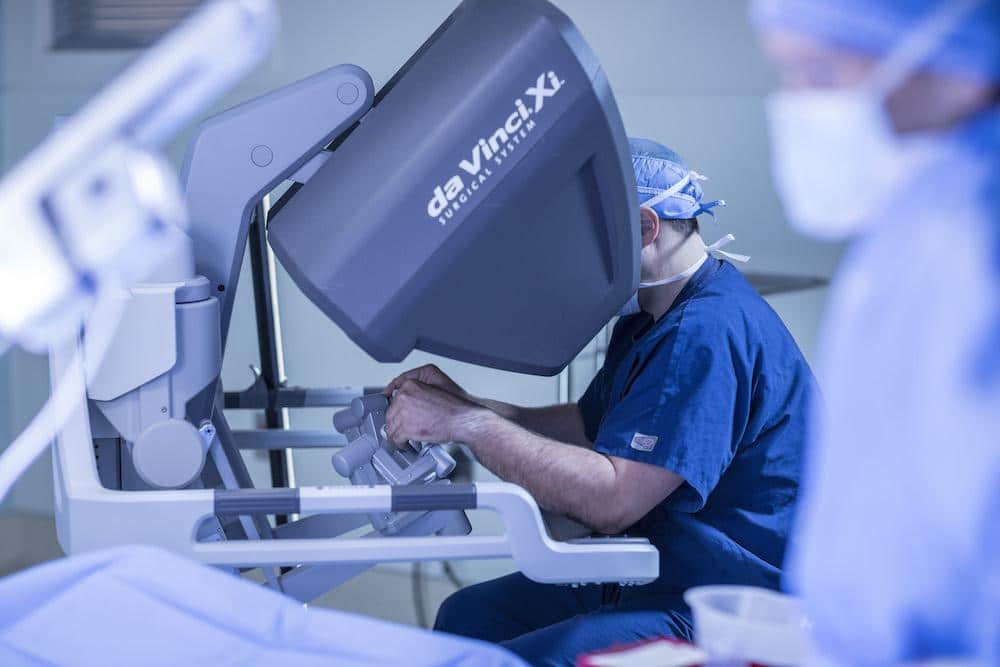The impact of the novel coronavirus pandemic has touched every part of our healthcare system, including halting all but the most urgent and emergent surgeries and surgical procedures as officials acted to curb any potential spread of the virus.

Beginning in March, this affected thousands of patients throughout northeast Georgia. But, even now as health systems examine a return to performing elective surgeries following directives from Georgia Governor Brian Kemp, Longstreet Clinic surgeon Chad Copper, M.D., FACS, says that healthcare professionals are taking every precaution to ensure the utmost safety for everyone involved.
“Please be patient; I know it’s frustrating. I’m frustrated too. I love my job, and there’s no place I’d rather be than in an operating room,” Dr. Copper said. “And as soon as we get the green light for safety, doctors at Longstreet Clinic and with Northeast Georgia Health System are going to do our best to catch back up. We’ve already got plans in place to ensure just that. In light of the governor’s recent comments regarding ‘essential’ surgeries, we are working on plans to do essential outpatient surgeries while protecting hospital resources.”
Even during the pause in all elective surgeries, Dr. Copper said he and his colleagues did not stop providing care to patients, instead integrating telehealth and video conferencing appointments into their practices.
“We’re protecting our patients and our healthcare providers,” Dr. Copper said. “I’m still seeing patients every day, and our general surgery department is still open at Longstreet Clinic. There will be a new normal due to the coronavirus and we are preparing for that world.”
Dr. Copper and many other Longstreet Clinic providers are able to provide the medical care patients seek thanks to a hard-working IT staff that has, “done an incredible job, going above and beyond to make sure we can do what we’re doing.
“As long as I can see incisions and talk with people, I don’t need to necessarily see them in the office. Now, if there are open wounds or other situations, then I need to see them in person.”
Whatever the circumstance, open lines of communication between patient and doctor are key to successful health care in the current atmosphere. And patients must play a role in this, ensuring that they reach out to their physicians with any questions or to note significant changes in their bodies.
“Communication with your surgeon is by far the most important thing right now. It’s always been important, but no time more so than now,” Dr. Copper said. “We continue to review all surgical cases and patients and if you have any concerns, or if you feel like your symptoms or situation is worsening, your doctor has to be notified. Call your physician as soon as possible.”
Even during the elective shutdown, doctors here in northeast Georgia still performed necessary urgent and emergent procedures. That means there is no need to “keep quiet” about a health issue that could lead to life-threatening or long-term problems if unattended by a physician.
And, while doctors certainly understand some have trepidation over entering a hospital or medical facility during a pandemic, they want patients to know that providers are taking every possible precaution to keep both patients and themselves coronavirus free.
“If someone has a perforated bowel, appendicitis or an incarcerated hernia, we would tend to them no matter what,” Dr. Copper said. “We’re still handling that at Northeast Georgia Medical Center and the Gainesville Surgery Center, and we are doing so with appropriate precautions for both patients and healthcare workers.”
So, while physicians understand the frustration of seeing a procedure postponed – including everything from colonoscopies and hernia surgery to thyroid surgery and beyond – they also want patients to know that they have not forgotten about them. In fact, they want to hear from them. And, should a serious health threat arise, there is absolutely no reason to think that safe and effective health care cannot be provided for anyone here in northeast Georgia.
“If you’re a patient, communicate with your physician, especially if anything is changing or if you have questions,” Dr. Copper said. “I hope everyone is being safe and responsible, and we just ask everyone to be patient. We will get through this together and back to a new normal soon.”

Why were elective procedures paused?
When the novel coronavirus, which causes COVID-19, pandemic began to break out in the United States and Georgia in late February and early March, Longstreet Clinic and Northeast Georgia Health System (NGHS) providers followed the U.S. Surgeon General’s recommendations to suspend all elective surgery procedures.
Why?
- To prevent patient exposure to coronavirus.
- To protect our providers. Surgery is a high-risk environment for exposure, and an unknown positive carrier could expose a lot of care providers.
- Conserve hospital resources, especially Personal Protective Equipment (PPE) for frontline healthcare workers who would be taking care of COVID-19 patients. Surgery requires the use of numerous gowns, masks and gloves, and those needed to be diverted to where they would be needed most.
However, not all surgeries have been postponed. In fact, Longstreet Clinic and NGHS physicians are still conducting surgeries for patients in urgent need, as defined by a triage system installed by the American College of Surgeons. And guidelines continue to evolve, as evidenced by the recent recommendations by Governor Kemp regarding essential surgery.
So, if you are suffering from any severe symptoms, or if your symptoms change or worsen, you can still call your physician, go to the hospital emergency room or call 9-1-1 and expect to safe and effective healthcare.
For all other symptoms, please contact your physician directly. Longstreet Clinic physician offices are open, including our surgical practices. Need help finding a provider? Click here. For more about telehealth/video visits, click here.
